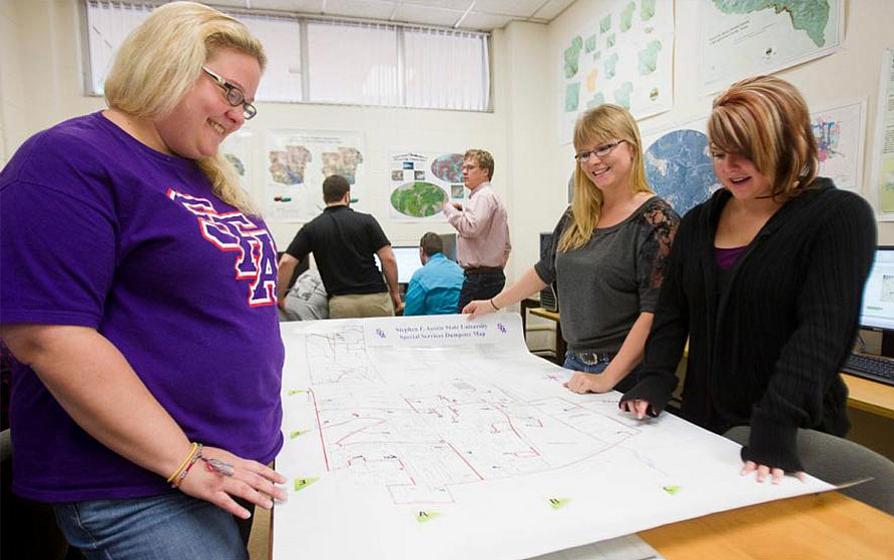A focus on society and culture
This unique program combines the STEM-based curriculum of a traditional geospatial science degree with an emphasis on people, culture and society that you’d typically find in a liberal arts discipline.
As a student in the cultural resources track, you’ll learn how to use state-of-the-art technology like drone, laser, global positioning systems and computer programming. You’ll take a deep dive into geographic information systems, as well as surveying and mapping. And you’ll learn how to apply the tools and technology of spatial science to fields like criminal justice, public health, transportation and marketing.
A supportive environment to help you succeed
What can you expect as a student in the Arthur Temple College of Forestry and Agriculture? Caring faculty members who love to teach and who are truly invested in your success. Small classes where you’ll never feel like just another face in the crowd. Opportunities for meaningful, transformative experiences outside of the classroom. Access to cutting-edge labs and facilities.
In other words, you’ll have the support network and resources you need to succeed and thrive during your time at SFA. And you’ll graduate with the skills and experience you need to stand out to potential employers and find a rewarding, high-paying career.
A wide variety of fast-growing jobs
Here are just a few potential career paths you can pursue after you earn your degree:
- Oil and gas industry
- Land management
- Urban development
- Utilities
Undergraduate programs
Bachelor of Science in geospatial science, cultural resources track
In addition to core geospatial science course requirements, students who choose the cultural resources track must choose an accompanying minor from the College of Liberal and Applied Arts.
Minors that pair well with geospatial science include:
- Anthropology
- Archeology
- Communications
- Criminal justice
- Geography
- Historical Preservation
- History
- Political science
- Public administration
 Axe ’Em, Jacks!
Axe ’Em, Jacks!
